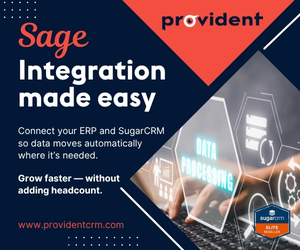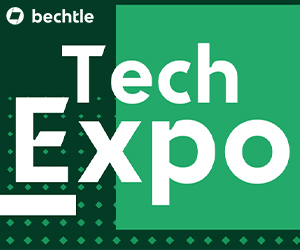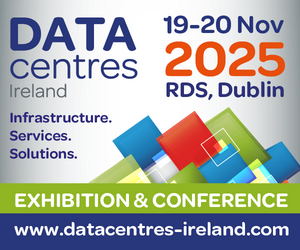Unlike some of the present Taoiseach’s other pet projects, e-government is actually happening. The OASIS (Public Service Information for Life) and BASIS (Business Access to State Information and Services) Websites both provide comprehensive information about the services on offer from the state as well as forms for download. However, the information stream is all one way. In other words, while the form for purchasing a television licence is available from the OASIS site, there is at present no mechanism for making such a purchase online. Ultimately, the goal is for citizens to be able to interact completely with the government agency of their choice by the medium of their choice.
To facilitate this, the government has established the Reach agency and given it the job of developing the Public Services Broker. This broker will act as a portal between the citizen and the various agencies whether that interaction is taking place in person, over the phone or on-line. It will hold information about the citizen, such as name, address, tax clearance certificates, passport details, birth certificates etc. in secure data vaults that can only be accessed with the citizen’s permission. It will also provide a single interface to multiple agencies that might be involved in a transaction.
An impression of how the system might work can be found at the Reach Services Website (www.reachservices.ie). Users can register with the site and once they receive an account activation code can use the Website to fill in application forms online for a variety of central and local government services including planning permission, mortgage relief or an E111 form. The final form of the broker will not be known for some time yet.
In January of this year, the government began the procurement process, and 28 companies submitted requests to participate. These were whittled down to six by April. The six shortlisted are: Accenture, HP, KPMG Consulting, Logica, PA and Siemens. According to a spokesperson for the Reach agency the submissions from these six companies are now being evaluated. ‘We are hopeful that the evaluation process can conclude before the end of the year and the contract will be awarded. We would envisage delivery of the broker by mid-2003.’ The exact nature of the broker and the technology that will be used to deliver it will form part of the negotiations on the final contract.
In the meantime, there are a number of e-government projects that are continuing independently of the broker project. The following is a description of some of them.
Courts Service
The procedures of the courts are rooted in traditions that date back centuries. Barristers may still be in mourning for Queen Anne, but the service is keen to take full advantage of 21st century technology. ‘It must be remembered that our original courts, the Brehon courts had an oral tradition of law,’ says the Hon. Mrs Justice Susan Denham, Chairperson of the Courts Service and Judge of the Supreme Court. ‘They were paperless courts. Then came the introduction of paper and the printing process. This was the modernisation of the courts at that time. The use of the written word was the tool of advancement.’
However, as she points out, paper has now taken over the courts and the sheer volumes involved have had a profound affect on the practice and procedure of law. ‘The future holds the prospect of once more returning to paperless courts. Change is happening very quickly. The courts are once again going through the type of radical change which occurred when paper, printed matter, took over from the oral tradition. Essentially, 1,000 years after the paper revolution we are living through the e-revolution’.
Ongoing projects at the court service include permitting online filing for the small claims court, which deals with faulty goods and services. ‘In partnership with the Department of Enterprise, Trade and Employment we have completed a requirement specification analysis and are currently considering the best way of making an online small claims court become a reality in 2003,’ says Gerry Curran, spokesperson for the Courts Service. Other projects include online payment of fines, integration of the Courts Service’s IT systems with those of the Gardai for tracking the penalty points system and ultimately the creation of e-Courts, where all filings are carried out online with barristers making legal motions from their chambers.
Central Statistics Office
For the first time data from the census will be available online to the general public. ‘We have purchased the software from Beyond 2020,’ says Francis McCann, statistician with the CSO, ‘and we plan to put tables on the Web when the results become available in July of next year.’ In the meantime, the CSO plans to put the results of the 1996 census, which are already available on CD-ROM, online within the next few months. Users will be able to manipulate the data by customising the tables to a small degree. ‘We are using the same software as we used for the 1996 CD-ROM, but the Web enabled version. We are doing our own customisation.’
Department of Enterprise Trade and Employment
The department is currently beta testing a new system to allow companies to file their annual returns to the companies registration office (CRO) electronically. According to a department spokesperson, the scheme is expected to go live by the end of November of this year. Companies will be required to use a company secretarial software package and there are four companies in the state making such packages. They will provide e-filing modules to interface with the CRO systems. Smaller companies will be able to use a Web-based system which will become available during November. There will be three online forms available to start with: B10 forms for change in company director or secretary; B2 forms for change of registered office; and C1 forms for notification of a charge against the company. Further forms will be made available over time.
For legal reasons, the CRO was obliged to discontinue its online company search services. However, these have been resolved and the service is online again. In September of this year, the CRO introduced a new online service to allow a member of the public to download a duplicate certificate of incorporation.
Patent office
The patent office publishes an official journal with details of patents granted and so on. The Patent Office is currently involved in putting the journal online and allowing users to search journals. The systems analysis of the project was completed in June and a request for tenders was issued in July. Twenty-four proposals were received and Propylon was awarded the contract in September. The site is scheduled to go live in mid-November.
At the moment if a member of the public wishes to search the patent office’s registers and databases they must call in person to the Office’s Information Centres in Dublin or Kilkenny. Some Trade Mark and Patent Agents may access the database directly via a dial-up connection. However, the Office is committed to providing online access to the general public. Requirements analysis and functional specifications were completed in September and the contract for implementation was awarded to French company, Sword. It is envisaged that the system will be fully implemented before the end of this year.
Department of Finance
One of the busiest sites in the state is the Department of Finance’s e-procurement site. The site has been live since March 2001, although it was not officially launched until December of that year. The site is managed by Commercial Information Company (CIC) in Belfast who also created the original site design. The actual site development and implementation was carried out by Dublin-based software house, e-blana. ‘The major issue with such an active site was making sure it was quick and reliable,’ says Aoife Forde, e-business consultant. ‘Originally it was built as a single database. However, we had to take steps to make sure it remained fast. We didn’t rewrite the site but we did break it down into several different databases so searches would be conducted through smaller volumes. For instance, once a tender has expired, it goes into a separate archive.’
The site contains tenders from awarding authorities in Ireland and Europe. CIC has three sources: Firstly, the official journal of the European Union, in which governments must publish tenders over a certain value (34 percent of tenders); secondly directly from the awarding authorities in Ireland, who will often also provide tender documents that can be downloaded (26 percent) and thirdly, by scanning the national and provincial newspapers (40 percent).
According to Pat McGrath, the site operates on five principles: Information is comprehensive; information is timely; the information is accurate; the site is secure and the site is accessible to everyone.
Revenue Online Service (ROS)
The Revenue Online Service is the most successful example of e-government in action. ‘At the moment we are getting 16,000 transactions per week through service,’ says ROS Strategy Manager, Margaret Whelan. The fact that the deadline for pay-and-file for the self employed is rapidly approaching probably accounts for much of that. Companies and individuals can file VAT returns, Form 11 tax returns. Earlier this year, new services including DIRT, Life Assurance Exit Tax, Investment Undertaking Tax, Dividend Withholding Tax, Professional Services Withholding tax and the Environmental Levy Tax were added.
‘We added online banking from Bank of Ireland on October 6,’ says Whelan, ‘and AIB was added the following week. We have also added enhanced management services for our customers. These arose out of a series of workshops we conducted in March. All of the priority and second tier requests have been delivered. These include a comprehensive information facility that allows customer to get access to their accounts and allow businesses to decide who within their organisation has access to the ROS.’
The service is continually being updated and new features will be added over the next year.
Payment of Vehicle Registration Tax by professional car dealers is under development. ‘We are still working to the target of October of this year,’ says Whelan. ‘We are breaking new ground with this service. We are going to provide a real time link for the motor industry and that’s a real technical challenge.’ Whelan stresses however, that the VRT system will be a standalone one and the security of the Revenue Commissioners’ mainframe will not be affected in any way.
The mainframe back end for the filing and payment of Relevant Contract Tax in the Construction Industry is currently being developed. Once that is complete, ROS will develop the service and hopes to have it online by the first quarter of next year, according to Whelan.
The service is also working on a number of EU funded projects. For instance, under new EU legislation, e-businesses operating outside the Union must register for VAT in a member state. The VAT on the e-commerce system must be in place by then. ‘Not aligned to that but in the same general territory is a new system for exporters that we hope to have in place by June 2003,’ says Whelan. ‘ROS hopes to provide a link to the NCTS system for exporters.’
Other projects exist in the longer term and are subject to funding. For instance Frank Daly, Chairman of the Revenue Commissioners recently spoke of his desire to see CAP refunds automated. This would involve several agencies. ROS customers could file the necessary forms online, Customs would carry out the necessary certification and a certified electronic payment document would be transmitted online to the Department of Agriculture, Food and Rural Affairs, which would find its way to the exporter’s bank account.









Subscribers 0
Fans 0
Followers 0
Followers